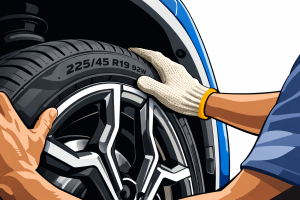Taking care of your car doesn’t have to be complicated, even if you’re a first-time car owner. One of the most important aspects of basic car maintenance is understanding the role of engine oil, oil filters, and the importance of regular servicing.
With a little knowledge, you can not only extend your engine’s lifespan but also save on future repair costs.
What Is the Function of Engine Oil and Why Is It Important?
Engine oil functions like blood in the human body. It lubricates the moving parts of the engine to reduce friction, cools the engine to prevent overheating, and cleans internal parts by carrying away dirt and contaminants.
Additionally, engine oil protects internal components from corrosion and wear. If the oil is not changed regularly, it becomes dirty and loses its ability to protect the engine effectively, which can eventually lead to serious damage.
Oil Filters: A Small But Crucial Component
The oil filter’s job is to trap dirt, dust, metal particles, and other impurities that accumulate in the engine oil. If not replaced on schedule, the filter can become clogged and block the flow of clean oil into the engine.
When this happens, contaminants circulate through the engine system, increasing friction and causing internal damage. Signs that the oil filter may no longer be working include an overheating engine, very dark and sludgy oil, the oil warning light turning on, or unusual noises from the engine.
When Should You Change Your Engine Oil and Filter?
In general, engine oil and filters should be changed every 5,000 to 10,000 kilometers, depending on driving habits, engine type, and the type of oil used. If you frequently drive in traffic with lots of stopping and starting, the oil tends to degrade faster.
Conversely, highway driving usually allows the oil to last longer. Older cars typically require more frequent servicing than newer models. For certainty, refer to your vehicle’s owner’s manual.
What Happens During an Oil Change Service?
During an oil change service, the old engine oil is completely drained from the engine. Then, the old oil filter is replaced with a new one before clean new engine oil is filled in, according to the engine’s capacity.
Mechanics will usually also check oil levels, inspect for leaks, and sometimes check other basic components like brake fluid, engine coolant, and battery water. This is part of a basic inspection to ensure your engine remains in optimal condition.
Types of Engine Oil – Which One Is Right for You?
There are three main types of engine oil: mineral oil, semi-synthetic oil, and fully synthetic oil.
- Mineral oil is a basic option, usually suitable for older vehicles or light usage. It is also the most economical.
- Semi-synthetic oil offers better protection at a still affordable price and is suitable for most modern cars.
- Fully synthetic oil provides the best protection, improved fuel efficiency, and longer intervals between servicing. It is ideal for high-performance engines or actively used modern vehicles.
DIY Servicing or Go to a Workshop?
While some car owners may be comfortable doing oil changes at home, those new to car care are better off leaving it to a certified mechanic. DIY servicing can save some cost, but it requires the right tools, a suitable workspace, and enough knowledge.
If not done correctly, it can lead to risks like oil leaks or damage to other components. Professional servicing ensures the procedure is done right, including thorough inspection of the engine and related systems.
Common Mistakes to Avoid
Some common mistakes by car owners include:
- Delaying oil changes for too long
- Not changing the oil filter
- Using oil types not suited to the engine specification
- Adding new oil without replacing the dirty old oil
- Ignoring dashboard warning lights
By following the correct service schedule and ensuring both the oil and filter are changed on time, you can maintain engine health and avoid costly major repairs.
Conclusion: Take Care of Your Oil, Take Care of Your Engine
Engine oil and oil filters aren’t just routine maintenance items—they’re investments in your vehicle’s safety, performance, and longevity. By understanding these basics and servicing regularly, you not only extend your engine’s life but also drive with greater confidence and peace of mind.
If it’s been a few months since your last oil change, now may be the perfect time to schedule a visit to the workshop. Don’t wait for warning signs to appear—early maintenance is key to optimal performance.
✅ Want to Schedule Your Oil Service?
We’re ready to help with fast, professional, and high-quality engine oil service. Get advice from our team and take the best care of your car.
👉 [Book Tayaria Now] or contact us for more information!




